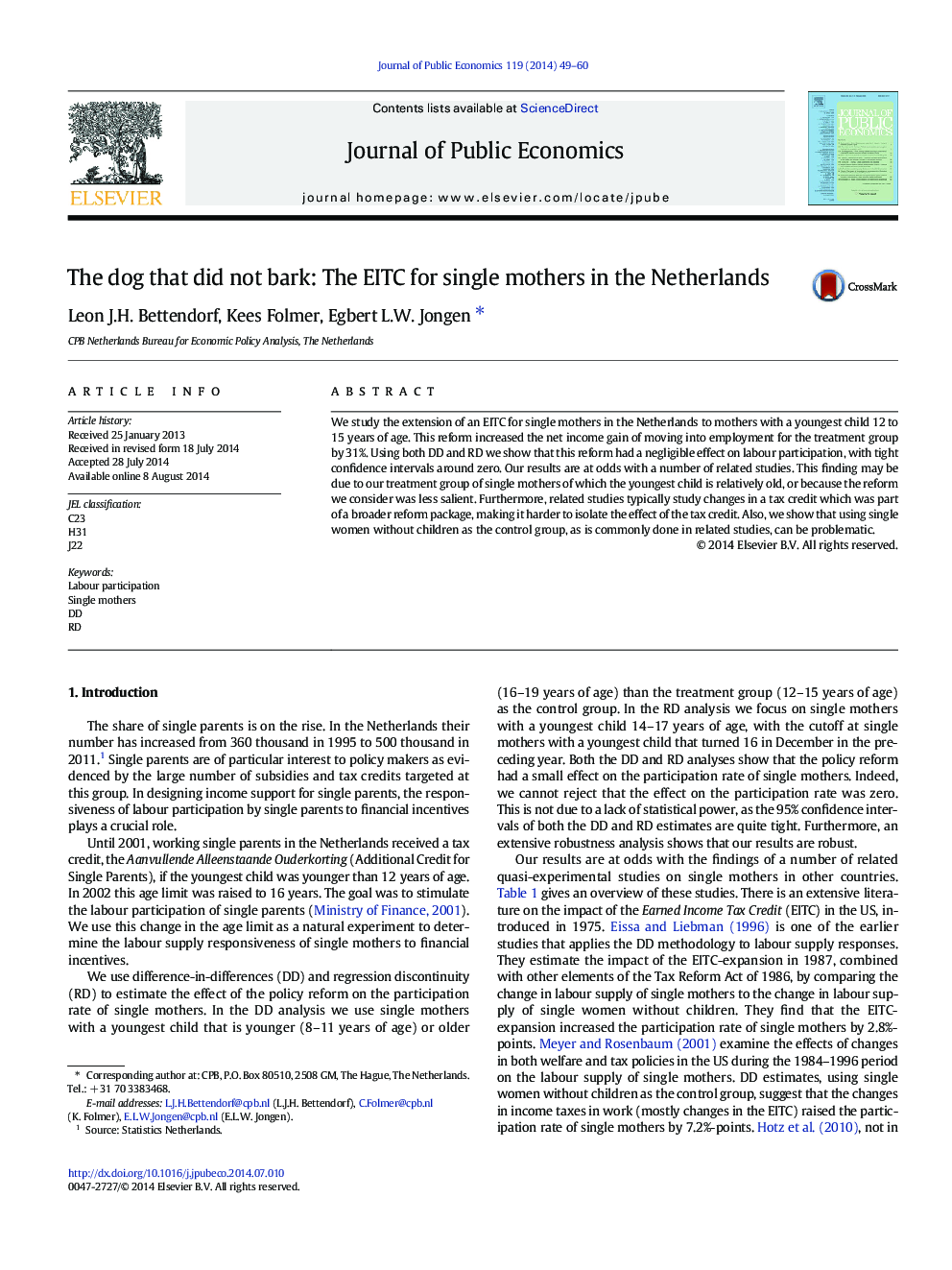| Article ID | Journal | Published Year | Pages | File Type |
|---|---|---|---|---|
| 969078 | Journal of Public Economics | 2014 | 12 Pages |
•We study the extension of an EITC to single mothers with a youngest child 12-15 yrs•Using DD and RD we find a zero effect on their participation rate, with a tight CI•This finding is at odds with related quasi-experimental studies on single mothers•We show that their control group of single women w/o childr. is invalid in our case
We study the extension of an EITC for single mothers in the Netherlands to mothers with a youngest child 12 to 15 years of age. This reform increased the net income gain of moving into employment for the treatment group by 31%. Using both DD and RD we show that this reform had a negligible effect on labour participation, with tight confidence intervals around zero. Our results are at odds with a number of related studies. This finding may be due to our treatment group of single mothers of which the youngest child is relatively old, or because the reform we consider was less salient. Furthermore, related studies typically study changes in a tax credit which was part of a broader reform package, making it harder to isolate the effect of the tax credit. Also, we show that using single women without children as the control group, as is commonly done in related studies, can be problematic.
